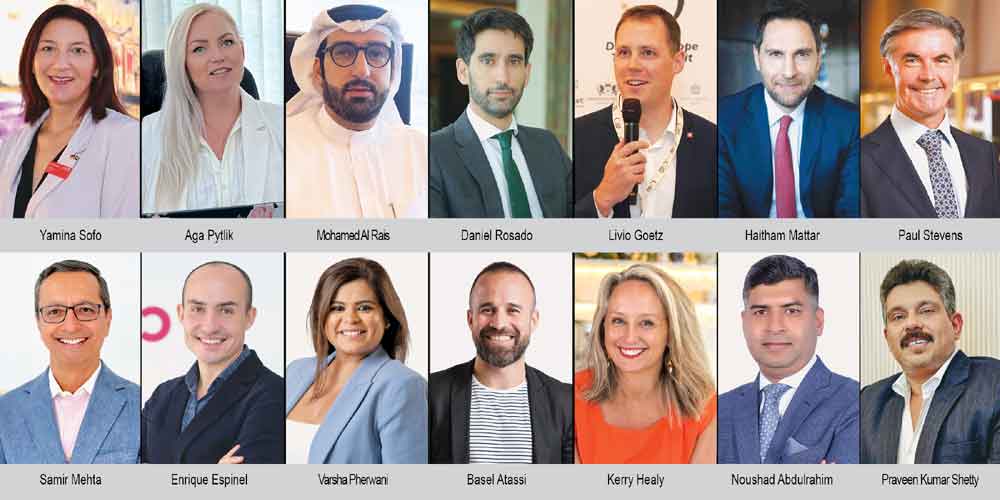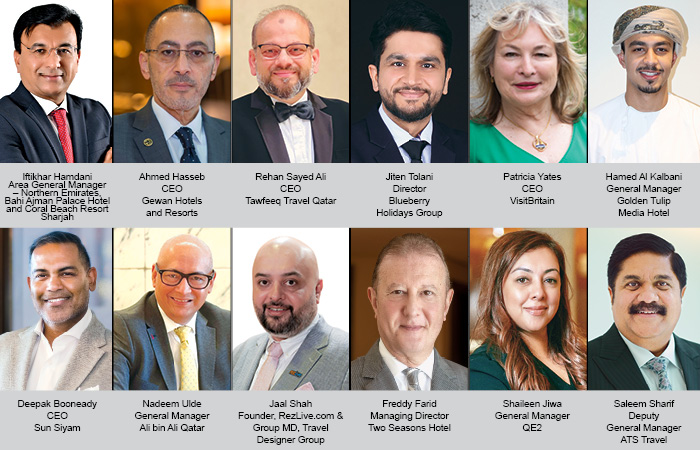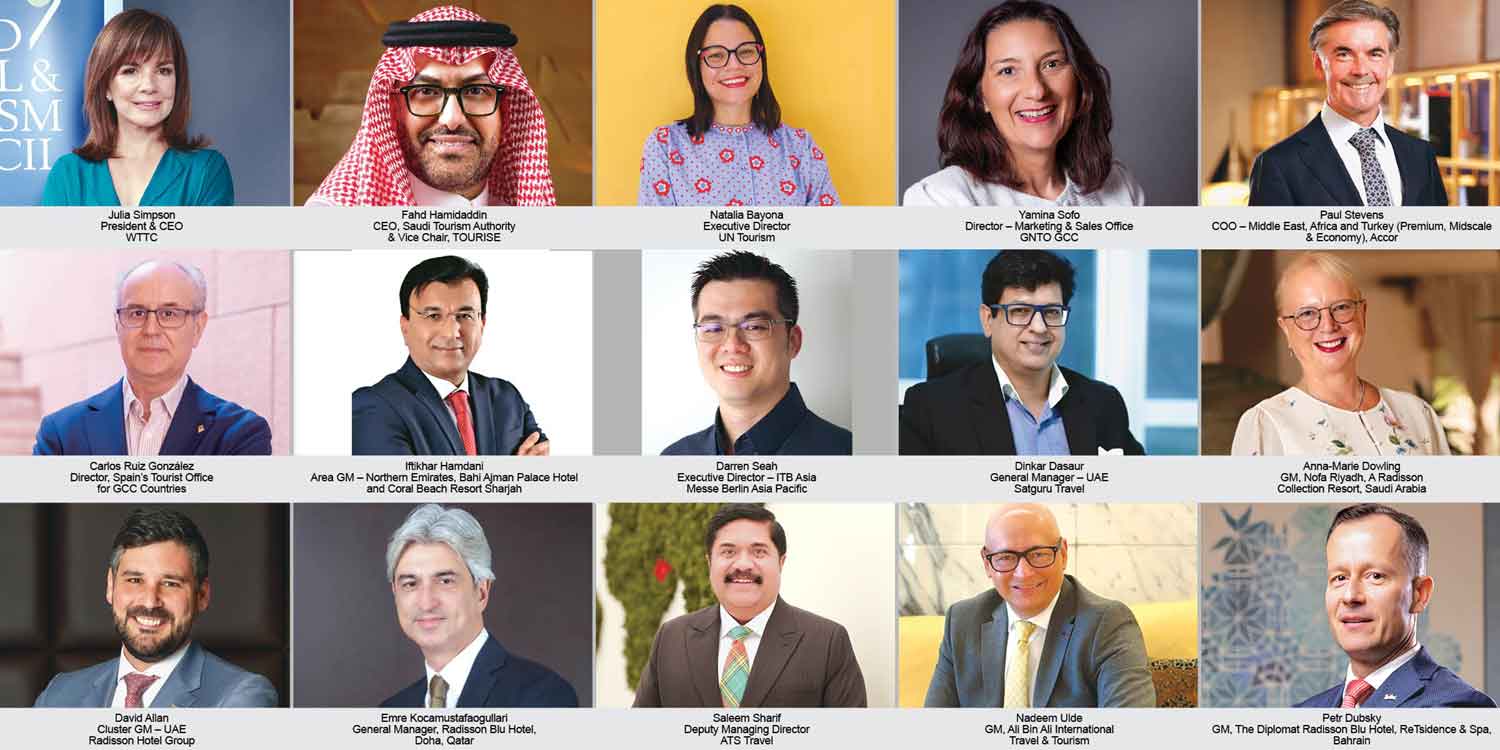Slow travel is the new way of travellers to explore on their own terms and in their own time in order to create lasting memories and connections. It seems to be the future of tourism. In the Middle East, the trend is being particularly driven by the younger generation, who prioritise sustainable ways of travel and tourism. Experts from hotels, tourism boards and travel trade share their views with TRAVTALK.
Yamina Sofo, Director, Marketing & Sales Office GNTO GCC
The emergence of slow travel in the region reflects a growing recognition of sustainability and mindful travel practices. It encourages immersion in local cultures, minimising environmental impact by favouring sustainable experiences and transportation choices. This is something the GNTO has been focusing on intensively with the ‘Simply Feel Good’ campaign, directed at prioritising quality over quantity and encouraging travellers to slow down, stay longer, and truly appreciate their destinations.
Aga Pytlik, General Manager, Pan World Travel & Tourism
The rise of slow travel in the GCC outbound market underscores the importance of sustainability and mindful travel. This trend is particularly resonant with the younger generation, who prioritise sustainable tourism. As Gen Z begins to travel, sustainability will likely become even more integral to the travel industry’s future. Within the GCC, travellers are increasingly focusing on wellness and well-being, reshaping the industry with new perspectives. AI and data-driven technologies revolutionize the travel experience.
Mohamed Al Rais, Executive Director, Al Rais Travel Group
Al Rais will be promoting Latin America for the UAE travellers. Key outbound destinations booked by travellers from the UAE this summer will reflect a blend of cultural exploration, iconic landmarks, and diverse experiences. Paris, London, Barcelona, Rome, and Istanbul consistently rank among favourites. Additionally, destinations like Japan and South Korea attract travellers with their unique blend of traditional heritage and modern innovations.
Daniel Rosado, Director, Spain Tourism
Slow travel is a trend that is picking up in the Middle East market and worldwide and it goes hand in hand with the new approach to travel in a more respectful and sustainable way trying to preserve the communities and destinations in order to be less invasive. This new way allows communities to be able to preserve their culture, economy and essence and at the same time showcase it to the tourists.
Livio Goetz, Director GCC, Switzerland Tourism
Mindful travel is a must nowadays. This is why we created ‘Swisstainable’, where not only Switzerland Tourism, but the entire Swiss tourism industry promotes Switzerland as a sustainable travel destination. Already now we can utilise AI to make a traveller’s life easier or in marketing. The main strategy for any business in travel should be: Don’t miss out on trends that can make a traveller’s life easier; but also to keep it real.
Haitham Mattar, Managing Director MEASWA, IHG Hotels and Resorts
COVID-19 has changed the way generations choose travel, with outdoor adventure now taking the No. 1 spot away from ‘beach, sun and sand’. The private sector needs to mirror the vision of their respective tourism authorities and work together to ensure appealing spending packages for those markets. AI will be critical for us to get a clear idea of how to enhance consumer preferences.
Paul Stevens, COO – MEA and Türkiye – Premium brands, Accor
Travellers are seeking more than just a vacation; they crave for meaningful experiences that honour local culture and protect the environment. This awareness drives demand for eco-friendly accommodations and data-driven personalisation solutions. Our hotels and brands are deeply rooted in their surroundings, aiming to contribute to a ‘Nature Positive’ world. In Middle East, we have eliminated single-use plastics across 90 per cent of properties.
Samir Mehta, COO, Desert Adventures
We are witnessing a move away from check-the-box sightseeing towards a desire for deeper connections and authentic experiences. This aligns perfectly with the unique cultural richness of our destinations – UAE, Oman, and Jordan. By prioritising experiences that immerse travellers in our local traditions and hidden gems, we are not just catering to a trend; we are building a sustainable tourism industry.
Enrique Espinel, COO, Civitatis
Middle Eastern travellers are demanding and look for high quality in everything they book, and this is something that fits perfectly with our curated business model. We are selective in choosing which suppliers we work with, and we can proudly say that the 6,500 we do so with are the best in their respective fields. Our platform offers a careful selection of activities around the world—over 90,000—but that allows customers to have an excellent user experience.
Varsha Pherwani, Travel Counsellor Associate, Travel Counsellors
Experential travel is gaining popularity and is very much here to stay, thanks to social media. People want to experience not only what is unique and different but they also want to be part of a journey where every moment is an opportunity for discovery, every encounter a chance to connect, and every destination a doorway to a world of possibilities. We support community based tourism which goes hand in hand with responsible tourism.
Basel Atassi, Travel Counsellor, Travel Counsellors
Responsible tourism promotes understanding, tolerance, and appreciation of diverse cultures. Sustainability plays an important role in the elevation, whether through environmental conservation that implements positive practices, adherence to eco-friendly initiatives or through powerful contribution to the conservation of biodiversity. Another key role of the industry evolution is the great potential to empower local communities by providing opportunities.
Kerry Healy, CCO – MEAAP – Premium Midscale and Economy brands Accor
Recognising the invaluable role of travel agents as partners, we continuously seek ways to acknowledge and reward their support through training initiatives and exclusive member rates. Additionally, our ALL-Meeting Planner offer allows professional organisers to earn points based on event value, facilitating a swift path to elite status within our programme. We are committed to staying ahead of market demands.
Noushad Abdulrahim, Cluster DOSM, Millennium Place Mirdif & Copthorne Hotel Dubai
Minimising water usage not only helps preserve this precious resource but also presents an opportunity for hotels to showcase their commitment to sustainability. The management of waste is yet another area where sustainability practices can generate positive impacts. Hotels are implementing recycling programmes, reducing single-use plastics, and embracing composting initiatives. These cost savings create a virtuous cycle.
Praveen Kumar Shetty, Chairman and Managing Director, Fortune Group of Hotels
Our focus for 2024 is Far East, which includes China and Asia, although majority of our bookings generate from India. We are excited about the new 4-star property we will open in the heart of Bur Dubai soon. This reflects our commitment to growth and long-term plans, extending even to our food and beverage offerings. Thanks to our dedicated team, Fortune continues to thrive, and we look forward to the journey ahead.
Compiled by Dr. Shehara Rizly
 TravTalk Middle East Online Magazine
TravTalk Middle East Online Magazine




